There’s a moment every store owner faces when building on WordPress.
You’ve got the idea. Maybe even your first product. But then comes the question that can shape your entire business: What is the best WordPress eCommerce plugin?
If you’ve already started looking, you know how messy it gets. Endless options. Confusing features. Conflicting advice. It’s easy to second-guess every step.
We’ve been close to this world for a long time, not just as a conversion tool used by top eCommerce stores, but as a team that works behind the scenes with clients, developers, and brands building on WordPress every day.
We’ve seen what happens when a plugin looks good in theory but struggles under real traffic. We’ve seen the surprise limitations, the pricing traps, and the setups that quietly scale without breaking.
That experience is what shaped this guide. The plugins mentioned ahead are the ones we’ve worked with, supported, and optimized across a wide range of stores.
If you’re trying to figure out the best eCommerce plugin for WordPress in 2026, that actually helps you sell, and plays nicely with the rest of your stack then you’re in the right place.
Overview – Best WordPress eCommerce Plugins
Before diving into my detailed review, here’s a quick overview of the top 5 choices for the best WordPress eCommerce plugin:
| Ranking | Plugin | Best For | Starting Price | Key Features |
|---|---|---|---|---|
| 1 | WooCommerce | Most users / Product stores | Free (extensions vary) | Physical + digital products, global shipping, themes, wide ecosystem |
| 2 | Easy Digital Downloads | Selling digital goods | Free (pro starts at $99/yr) | Downloads, software licensing, recurring payments |
| 3 | Ecwid | Multi-channel sales | Free (pro from $19/mo) | Sync to Facebook, Instagram, Amazon, and POS |
| 4 | BigCommerce | Enterprise needs | From $29.95/mo | External hosting, headless-ready, no plugin bloat |
| 5 | WP EasyCart | Budget-friendly setup | Free (pro from $69/yr) | Shipping, coupons, taxes, Stripe/PayPal, digital/physical sales |
With OptinMonster, boost your eCommerce store’s conversion rate.
Instantly grow your email list, get more leads and increase sales with the best lead generation and customer acquisition software in the market.
Want to see it in action for yourself? Create your risk-free OptinMonster account today!
1. WooCommerce – The Most Popular WordPress eCommerce Plugin

WooCommerce is different. It’s not just the most popular WordPress eCommerce plugin. It’s the one we’ve seen power everything from side hustles to million-dollar stores.
What Makes WooCommerce Stand Out
WooCommerce feels like home if you’re already on WordPress. You install it, and instantly your site becomes a storefront. But it doesn’t stop at “just working.” It adapts to you.
Want to sell physical products with complicated shipping? No problem. Selling digital downloads with custom licensing? It can handle that too. Running a subscription box or a membership site? There’s an extension for that.
We once helped configure a wellness brand that needed different SKUs, regional shipping, and bundle discounts all inside WooCommerce. It wasn’t effortless, but once it clicked, it ran like a dream.
That’s the beauty of WooCommerce. It bends without breaking. And when you need to scale, it doesn’t lock you into someone else’s system. You own it.
What You Should Know Before You Start
WooCommerce gives you control but that control comes with responsibility. You’ll need to get familiar with WordPress fundamentals, configure things like taxes and shipping zones, and yes, you’ll likely need to invest in a few premium extensions.
The core plugin is free, but the real power comes from its ecosystem and that can cost more than you think. Still, you’re not paying for fluff. You’re paying for what you actually need to grow.
You’ll also want reliable hosting. WooCommerce can scale, but not if your site is dragging on a shared server with no optimization.
Pros
- Designed for full control and long-term growth
- Works with nearly every major WordPress theme and plugin
- Massive library of extensions for every feature imaginable
- Thriving support community and documentation
- Integrates beautifully with tools like OptinMonster for boosting conversions
Cons
- Not the most beginner-friendly setup out of the box
- Paid extensions can get expensive depending on your use case
- Requires regular maintenance, updates, and some WordPress know-how
Final Thoughts
WooCommerce isn’t perfect but it’s powerful, proven, and trusted by the best.
If you’re just starting out and want to test a product idea, it can handle that. If you’re scaling to thousands of SKUs across multiple countries, it can handle that too.
You won’t outgrow WooCommerce anytime soon. And if you’re the kind of person who wants to build a store that’s truly yours and not rented from someone else, this is where you start.
2. Easy Digital Downloads – The Best Plugin for Digital-Only Stores
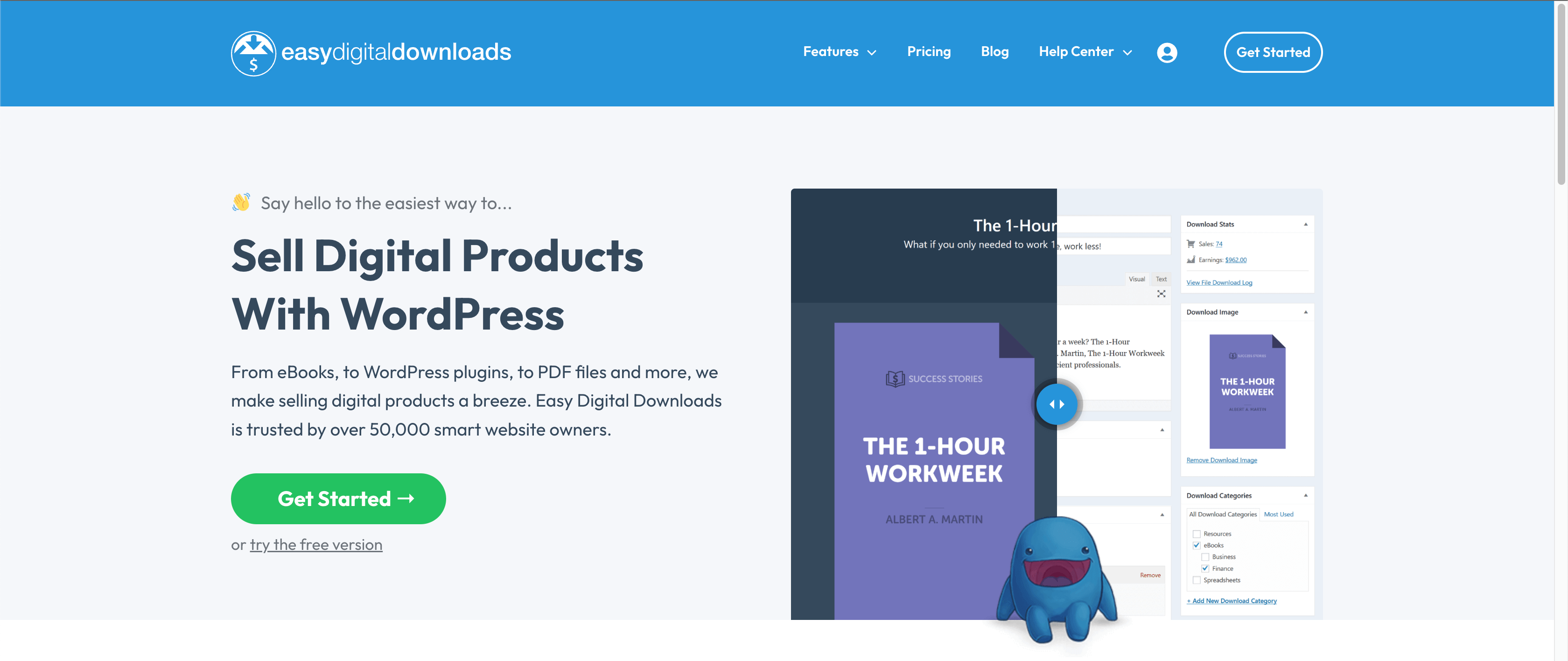
Selling digital products is supposed to be simple.
No boxes to ship. No stock to track. Just you, your product, and the customer.
But if you’ve ever tried to set that up on WordPress, you know how quickly “simple” turns into a mess of plugins, patches, and payment issues.
That’s exactly why we recommend Easy Digital Downloads.
EDD is built for one thing: helping you sell digital goods efficiently, reliably, and without the bloat. And for creators like us, that focus makes a world of difference.
Why We Trust EDD
We’ve used EDD across several projects, including our own internal training libraries and client course platforms. Every time, it gave us what we needed without dragging us into features we didn’t ask for.
I still remember one build where we needed to deliver software licenses, handle subscriptions, and keep downloads secure. It sounded complicated. But with EDD, it wasn’t.
Setting up variable pricing? Easy. Connecting Stripe? Done in minutes. Protecting download links? Built in.
It just worked and in a way that let us stay focused on the product, not the platform.
Where It Might Not Fit
Now, let’s be honest. If you’re selling physical goods, this isn’t the plugin for you. There’s no built-in inventory system, no shipping calculator, no packaging rules. That’s not a flaw, that’s intentional.
EDD knows its lane. It’s not trying to be WooCommerce. It’s trying to serve digital creators well and it does.
Just know that the free version is a starting point. To unlock features like recurring payments or advanced analytics, you’ll need to explore their paid extensions or bundles.
Pros
- Designed specifically for digital products
- Clean, distraction-free checkout
- Easy setup for one-time or recurring sales
- Lightweight and fast, even on shared hosting
- Trusted by developers and creators alike
Cons
- No support for shipping or physical inventory
- Most business-critical features live in premium extensions
- Can feel limited if you plan to expand beyond digital
Final Take
If you’re a creator, coach, developer, or educator selling digital goods, Easy Digital Downloads is the plugin that gets out of your way so you can get to work.
It’s focused, it’s fast, and it’s been tested by thousands of businesses just like yours, including ours.
Learn how OptinMonster works beautifully with EDD to help you increase sales →
3. Ecwid – Best for Selling Everywhere (Not Just on WordPress)

Sometimes, your store doesn’t live in one place.
You might already have a website. Maybe you’re selling through social media platforms, or you want to test products across different platforms. In those cases, setting up a traditional store can feel like overkill or worse, like starting from scratch.
That’s where Ecwid comes in.
Ecwid is designed for sellers who want flexibility. You can drop your store into a WordPress page, a Facebook Shop, a YouTube channel, or even a mobile app and it all connects back to the same dashboard.
We’ve worked with small business owners who didn’t need a full WooCommerce setup but still wanted a way to manage products and process payments without technical headaches. For them, Ecwid was a perfect middle ground.
What It’s Like to Use
Setting up Ecwid is straightforward. You create your account, embed your store with a shortcode or block, and you’re off. It handles the product pages, checkout, taxes, payments — everything — from its own hosted system.
One client of ours was running a community blog and wanted to sell merch without changing their theme or installing five new plugins. Ecwid dropped right in, styled itself automatically, and let them manage orders from a clean interface outside of WordPress. No plugin conflicts. No broken layouts.
It’s especially useful if you want to sync inventory across channels. You can sell on Instagram, TikTok, marketplaces like Amazon, and even in person all from one place.
What to Keep in Mind
Ecwid isn’t as customizable as something like WooCommerce. You’re working within their design and logic, which is great for simplicity but limiting if you need advanced features or want full control over the customer experience.
Also, while there is a free plan, most of the features serious sellers need like product variants, discount tools, or abandoned cart recovery live in the paid plans.
Pros
- One dashboard for multi-channel selling
- No need to rebuild your site to add a store
- Fast, simple setup for non-tech users
- Secure and hosted — less maintenance
- Works well even outside of WordPress
Cons
- Limited design and layout control
- Can’t match the depth of WooCommerce’s plugin ecosystem
- Most advanced features require a paid plan
- SEO control is not as strong as native WordPress setups
Final Take
Ecwid is a great choice if you want to start selling fast without rebuilding your whole site.
It won’t give you the deep customization of WooCommerce or the digital-first focus of EDD, but if your goal is to sell across platforms with as little tech fuss as possible, this is the tool that helps you do it.
We recommend Ecwid for small businesses, creators with an existing audience, and anyone who needs a reliable way to manage products in multiple places at once.
4. BigCommerce – Best for Growing and Enterprise-Level Stores

There comes a point in your business when duct tape won’t cut it anymore.
You’ve outgrown the patchwork setup. Your store is scaling. Your team is growing. And suddenly, uptime, speed, and backend structure aren’t just “nice to have”, they’re critical.
That’s where BigCommerce proves its value.
Unlike plugins that depend on your hosting environment and WordPress setup, BigCommerce handles the heavy lifting for you. It’s a hosted platform with serious eCommerce infrastructure, and it integrates with WordPress so you can keep the frontend you love without compromising on performance.
We’ve seen it work in high-traffic environments where every second counts and where plugins alone can start to buckle under the weight.
Why Teams and High-Growth Stores Choose BigCommerce
One of our sister brands migrated to BigCommerce after maxing out their old setup. They needed something that could handle thousands of SKUs, complex tax logic, international currencies, and advanced user permissions all without needing a developer on standby every week.
BigCommerce gave them that. From fast, secure checkouts to built-in features like abandoned cart recovery, product filtering, and real-time shipping quotes, everything came ready out of the box.
And since the backend is hosted separately from WordPress, performance wasn’t an issue even during sales and promos that brought serious traffic.
If WooCommerce is like building your store piece by piece, BigCommerce is like walking into a store that’s already fully stocked, structured, and ready to open.
Where It’s Different
That said, BigCommerce isn’t the most flexible when it comes to design. You’re working within its ecosystem, and customizing things beyond what’s offered may require developer support.
There’s also a learning curve. The interface is powerful, but packed with settings. For store owners coming from more streamlined tools, it can feel overwhelming at first.
And while pricing is competitive for what you get, it’s still a premium platform this is not the cheapest way to start selling online. But for businesses already generating revenue, it can be a smart investment that saves money long-term by reducing tech issues and plugin overload.
Pros
- Scalable for enterprise and high-volume stores
- Built-in security, backups, and performance optimization
- Excellent SEO features and multi-channel selling support
- Advanced product management without needing extra plugins
- Integrates with WordPress while handling the store backend separately
Cons
- Premium pricing with tiered feature access
- Less theme flexibility than fully self-hosted solutions
- Interface can feel overwhelming at first
- Not ideal for small or solo businesses just getting started
Final Take
BigCommerce is for store owners who are done piecing things together and ready to run their business like a business.
If you’re dealing with large catalogs, international sales, or multiple team members managing the store, this is the kind of platform that gives you breathing room to grow.
You don’t have to manage performance. You don’t have to chase updates. You just log in and get to work.
Here’s how store owners use OptinMonster to grow revenue without switching platforms →
5. WP EasyCart – A Simple Store Setup When You’re Just Starting Out
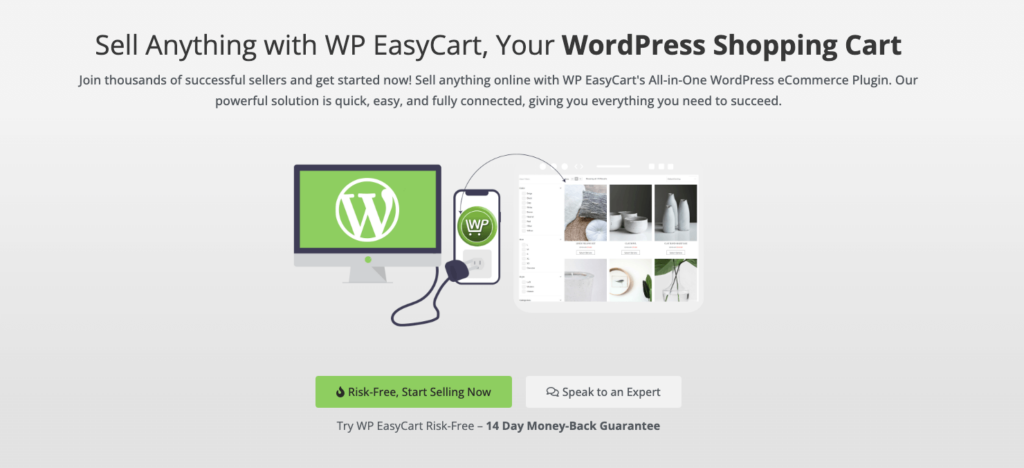
Not everyone begins with a warehouse of products or a big team behind the scenes.
Sometimes, you’re just trying to sell your first handmade item. Or put up a simple store for a local service. Or finally give your side hustle a place to live online.
That’s where WP EasyCart really shines.
We’ve worked with several folks in this exact spot; new business owners, nonprofit teams, even artists setting up their first merch store. They didn’t want complexity. They just needed something that would work, without needing five plugins and a developer on speed dial.
And WP EasyCart delivered.
What It’s Like to Use
The setup is surprisingly smooth. Install the plugin, walk through the quick-start guide, and suddenly your WordPress site has a working shopping cart. You don’t have to configure 20 settings to make it work.
One of the most recent stores we helped launch with EasyCart was for a fitness coach selling a few downloadable guides and resistance bands. Nothing too complex but they needed it to look clean and process orders reliably.
WP EasyCart took care of everything: product pages, basic shipping, Stripe payments, even discount codes. And it stayed stable through a growing list of orders, no hidden issues, no “wait, why is this button broken” panic.
When to Choose Something Else
That said, this isn’t the plugin for advanced marketing setups or a product catalog with 200 variations. It keeps things lean and that’s a strength, not a flaw.
If you outgrow it, you’ll know. But for now? It’s a great way to launch quickly without overwhelm.
Pros
- Fast, clean setup for first-time store owners
- Built-in tools that just work — no patching needed
- Affordable pricing with solid core features
- Great for limited catalogs and small teams
- Integrates smoothly inside the WordPress dashboard
Things to Consider
- Not designed for high-traffic or complex stores
- Limited control over deep customization
- Fewer integrations than bigger platforms like WooCommerce
- Smaller user community and plugin ecosystem
Final Take
WP EasyCart is one of those tools that makes you feel like, “Okay, I can do this.”
It gives you the confidence to launch your store without the friction or tech overload. If you’re building something simple, focused, and budget-friendly, this might be exactly the plugin you were hoping to find.
WordPress eCommerce Plugins: Honorary Mentions
Not every tool needs to be a full shopping cart to help you sell smarter. Here are a few standout tools worth keeping on your radar:
WP Simple Pay – Stripe Payments Without the Bloat
If you don’t need a full cart system and just want to collect payments quickly, WP Simple Pay is one of the cleanest ways to do it.
It’s perfect for coaches, consultants, or service providers who need to accept one-time or recurring payments — without managing product catalogs or shipping settings.
We’ve used it on landing pages, webinar registrations, and even donation drives. The Stripe integration is seamless, and setup takes minutes.
TrustPulse – Build Social Proof in Real Time
Sometimes the biggest sales boost doesn’t come from a new feature it comes from trust.
TrustPulse lets you display real-time activity on your site: purchases, signups, and other user actions. It’s a simple way to show your visitors, “Hey, other people are buying too.”
We’ve seen this increase conversions overnight, especially on new stores that need to build credibility fast.
OptinMonster – Turn Visitors Into Subscribers and Sales
OptinMonster isn’t an eCommerce plugin in the traditional sense, but it plays a huge role in how stores convert traffic into revenue.
Whether you’re running WooCommerce, EDD, or something else entirely, OptinMonster helps you grow your email list, reduce cart abandonment, and promote offers with targeted popups, slide-ins, and exit-intent campaigns.
We’ve seen store owners double their email opt-ins in a week just by adding one well-timed OptinMonster campaign.
Shopify – A Full Store, Even Without WordPress
While not a WordPress plugin, Shopify deserves mention for sellers who want a fully hosted platform with minimal tech setup.
It’s not as customizable as WooCommerce, but if you want a clean, fast way to launch an online store with built-in hosting and support, Shopify can be a smart choice, especially for solo sellers or drop shippers.
You can even embed Shopify buy buttons into WordPress if you’re blending both worlds.
MemberPress – Sell Access, Not Just Products
If your business is built around memberships, gated content, or courses, MemberPress is one of the most powerful ways to manage access.
We’ve used it on coaching sites, training platforms, and even private community hubs. Combine it with tools like WP Simple Pay or OptinMonster, and you can create a full funnel, from signup to sale to subscriber.
These tools may not be the core of your eCommerce engine, but they can absolutely make the difference between “just running a store” and building one that grows, converts, and keeps customers coming back.
What’s the Best WordPress eCommerce Plugin?
By now, you’ve seen that there’s no one-size-fits-all when it comes to selling online.
Some plugins are built for scale. Others are made to launch fast. And depending on your product, team, and goals, the best choice isn’t always the biggest name but it’s the one that helps you move forward without friction.
Here’s how we think about it after years of working with these tools across our own brands, client stores, and thousands of WordPress users:
- Just starting out with a small budget?
WP EasyCart gives you a fast, no-fuss way to get selling without a huge learning curve. - Selling only digital products?
Easy Digital Downloads was made for this, and it keeps things simple, secure, and efficient. - Need to sell across multiple platforms and not just your site?
Ecwid is your go-to for multi-channel selling that doesn’t slow you down. - Running a fast-growing or high-volume store?
BigCommerce offers serious infrastructure and features to match your momentum. - Looking for flexibility, control, and the biggest ecosystem?
WooCommerce is still the most powerful all-around option especially if you’re building a store that needs to evolve over time.
Our Top Pick?
WooCommerce is the best eCommerce plugin for WordPress in 2026 if you want maximum flexibility, deep integrations, and room to grow.
It takes a bit more setup than some others, but with the right extensions, good hosting, and a bit of guidance, it can support just about any eCommerce model, from digital downloads to complex product catalogs and everything in between.
Final Thought
Whichever tool you choose, remember this: the plugin is just part of the picture. What really grows a store is how you connect with your visitors, build trust, and guide them toward the right product.
That’s where tools like OptinMonster come in, turning more of your traffic into subscribers, and more of your subscribers into customers.
Want to see how OptinMonster can work alongside your eCommerce plugin of choice?
Frequently Asked Questions About WordPress eCommerce Plugins
What is the best WordPress eCommerce plugin?
WooCommerce is the best overall WordPress eCommerce plugin for most users in 2026. It offers maximum flexibility, the largest ecosystem of extensions, and can handle everything from simple stores to complex catalogs. However, the “best” plugin depends on your specific needs—digital-only sellers might prefer Easy Digital Downloads, while multi-channel sellers could benefit more from Ecwid.
Do I need coding knowledge to set up a WordPress eCommerce store?
Not necessarily. Plugins like WP EasyCart and Ecwid are designed for beginners with minimal technical knowledge. WooCommerce and Easy Digital Downloads require some familiarity with WordPress basics, but you don’t need to code. BigCommerce handles most technical aspects for you, though it has a steeper learning curve.
Are WordPress eCommerce plugins free?
Most have free core versions, but functionality varies. WooCommerce and Easy Digital Downloads offer free base plugins, with paid extensions for advanced features. Ecwid and BigCommerce have free tiers but require paid plans for serious selling. WP EasyCart offers a free version with pro plans starting at $69/year.
Is WooCommerce really free?
The core WooCommerce plugin is free, but you’ll likely need to invest in premium extensions, quality hosting, and possibly a premium theme. While the plugin itself costs nothing, most store owners end up spending on tools like payment gateways, shipping calculators, or marketing features to build a fully functional store.
What hosting do I need for WooCommerce?
WooCommerce requires reliable hosting to perform well, especially as you scale. Avoid basic shared hosting for serious stores. Look for WordPress-optimized hosting with good performance, security, and support. Many hosts offer WooCommerce-specific plans that include optimization and staging environments.
Can WooCommerce handle both physical and digital products?
Yes, WooCommerce handles both physical and digital products seamlessly. You can sell downloadable files, physical items with shipping, subscriptions, memberships, and even bookings—all from the same store. This flexibility is one of its biggest strengths.
What’s the difference between WooCommerce and Easy Digital Downloads?
WooCommerce is a comprehensive eCommerce solution for any type of product, while Easy Digital Downloads is specifically built for selling digital goods like software, ebooks, courses, and downloads. EDD is lighter and more focused, making it ideal if you only sell digital products. WooCommerce is better if you need versatility or plan to sell physical items.
Should I choose Ecwid or WooCommerce?
Choose Ecwid if you want to sell across multiple platforms (Facebook, Instagram, Amazon) from one dashboard with minimal setup. Choose WooCommerce if you want deeper control, more customization, and a store that’s fully integrated with your WordPress site. Ecwid is simpler but less flexible; WooCommerce is more powerful but requires more setup.
When should I consider BigCommerce over WooCommerce?
Consider BigCommerce if you’re running a high-volume store, need enterprise-level features out of the box, or want to offload technical maintenance and hosting concerns. It’s ideal for growing businesses that need scalability without managing plugins and server performance. WooCommerce is better if you want complete control and customization.
How long does it take to set up a WordPress eCommerce store?
With WP EasyCart or Ecwid, you can have a basic store running in under an hour. WooCommerce typically takes a few hours to a day for initial setup, depending on your needs. Easy Digital Downloads can be configured quickly for simple digital sales. BigCommerce requires more time initially due to its comprehensive feature set and learning curve.
Can I accept credit card payments with these plugins?
Yes, all five plugins support major payment gateways. Most integrate with Stripe and PayPal by default. WooCommerce and BigCommerce offer the widest range of payment gateway options. Easy Digital Downloads works seamlessly with Stripe. Check that your preferred payment processor is supported before choosing a plugin.
Do these plugins work with my existing WordPress theme?
Most modern WordPress themes work with these plugins, though some are optimized specifically for WooCommerce. Ecwid adapts to any theme automatically. WP EasyCart and Easy Digital Downloads generally integrate smoothly. BigCommerce uses a headless approach, so design integration requires more consideration.
What’s the real cost of running a WooCommerce store?
Beyond the free plugin, expect to budget for: quality hosting ($10-50+/month), premium extensions ($50-300+/year), a payment gateway (2-3% per transaction), possibly a premium theme ($50-100), and conversion tools. Total costs vary widely based on your needs, but plan for at least $30-100/month for a professional setup.
Can these plugins handle high traffic and large product catalogs?
BigCommerce is built for high traffic and large catalogs out of the box. WooCommerce can scale significantly with proper hosting and optimization. Easy Digital Downloads handles high traffic well for digital products. Ecwid’s hosted solution manages performance for you. WP EasyCart is best suited for smaller catalogs and moderate traffic.
Will I outgrow these plugins as my business grows?
You won’t outgrow WooCommerce or BigCommerce—both scale to enterprise levels. Easy Digital Downloads works well for growing digital product businesses. Ecwid can support growth but has some limitations compared to WooCommerce. WP EasyCart is designed for smaller operations; you may eventually need to migrate to a more robust platform.
Do I need to update these plugins regularly?
Yes, regular updates are essential for security and functionality. WooCommerce, Easy Digital Downloads, and WP EasyCart require manual updates (though WordPress can automate this). Ecwid and BigCommerce handle updates on their platforms. Always backup your site before updating any plugin.
Can I migrate from one plugin to another later?
Migration is possible but can be complex. Moving from WP EasyCart to WooCommerce is relatively common. Migrating between platforms like Ecwid and WooCommerce requires exporting products and rebuilding. BigCommerce offers migration services. Plan your choice carefully, but know that switching is possible if your needs change.
How do these plugins affect my site’s speed?
WooCommerce can slow your site if not properly optimized, especially with many extensions. Easy Digital Downloads is lightweight and fast. Ecwid loads its store separately, minimizing impact. BigCommerce handles the store externally, keeping your WordPress site fast. WP EasyCart is generally lightweight. Speed depends heavily on hosting quality and optimization.
Where can I get help if I run into problems?
WooCommerce has extensive documentation, forums, and a massive community. Easy Digital Downloads offers solid documentation and support for paid users. Ecwid provides support through their platform. BigCommerce offers enterprise-level support. WP EasyCart has documentation and email support. For all platforms, you can also hire WordPress developers for custom help.
Can I use OptinMonster with any of these plugins?
Yes, OptinMonster works seamlessly with all five plugins. It’s designed to integrate with WordPress eCommerce stores to help grow your email list, recover abandoned carts, and increase conversions through targeted campaigns. Many store owners use OptinMonster alongside their eCommerce plugin to boost sales.
More on WordPress Plugins
- 29 Best Shopify Apps To Boost Your eCommerce Store: Free + Paid Apps
- 18 Best WordPress Plugins & Tools
- 32 Best WooCommerce Plugins to Grow Your eCommerce Business
- WordPress Affiliate Plugin – Best 10
- 12 Best WordPress Plugins For Coming Soon Pages
- Here Are the 6 Best WordPress Form Plugins
- Conquering Course Creation: Top WordPress LMS Plugins Compared

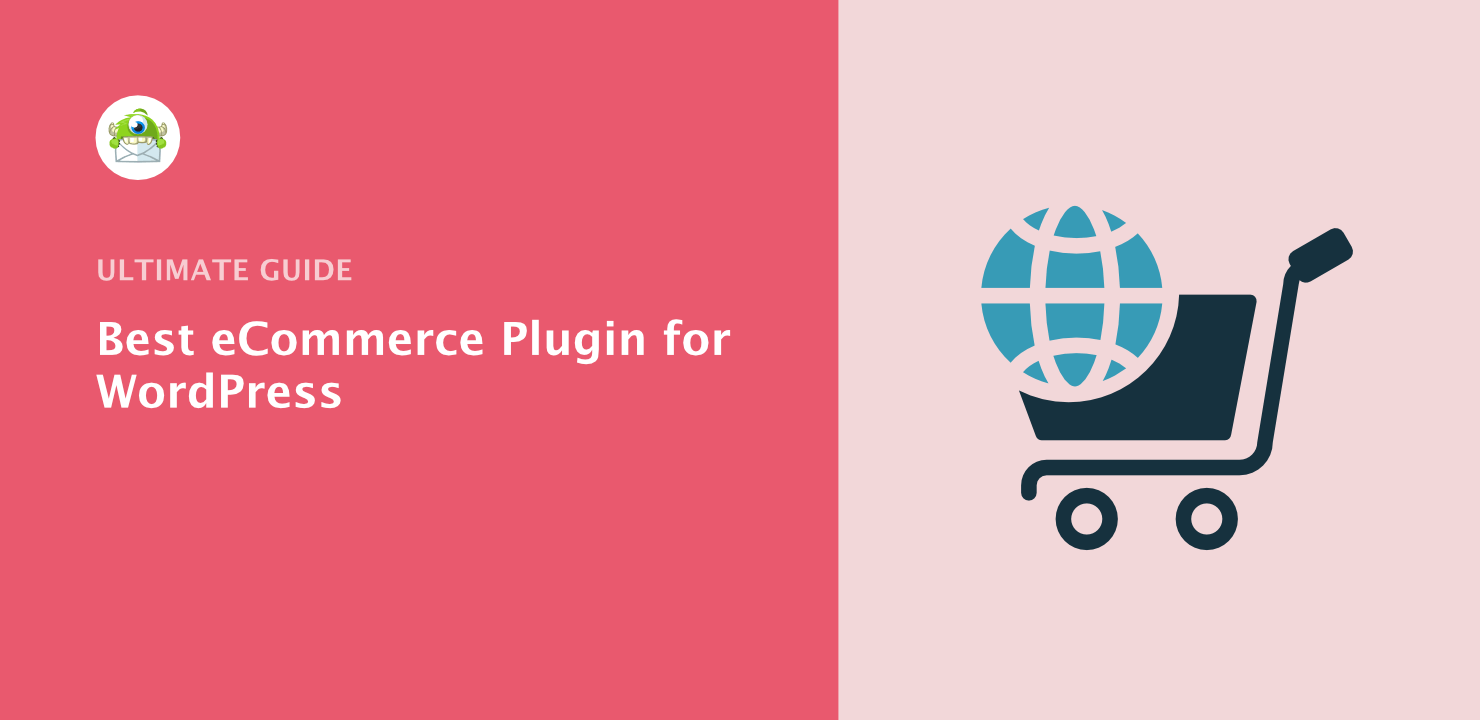
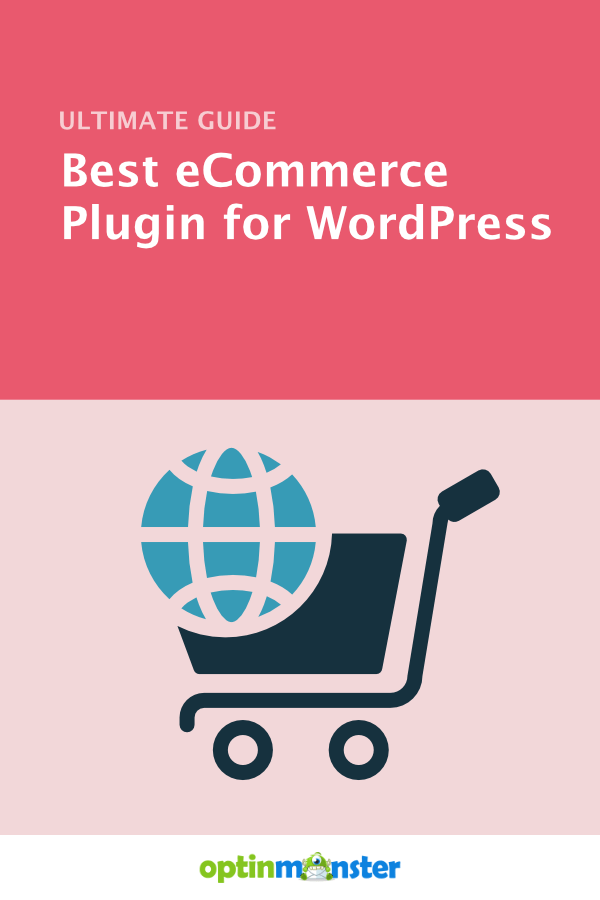




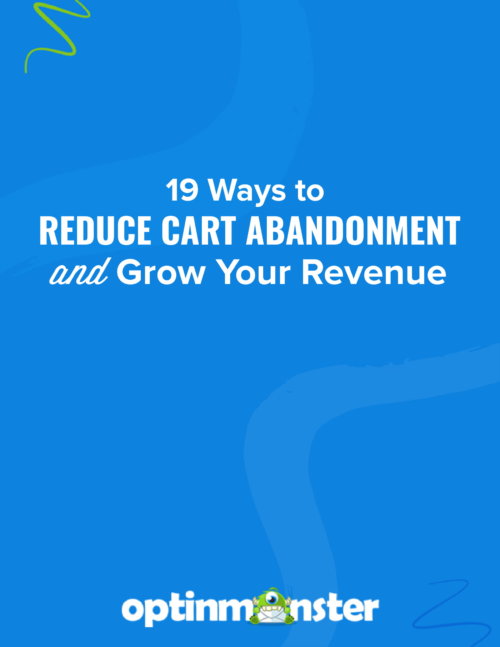



Add a Comment